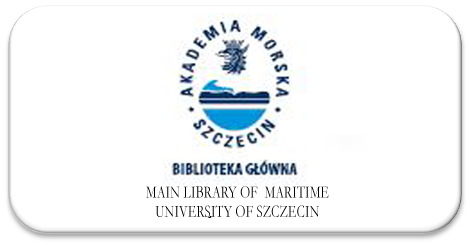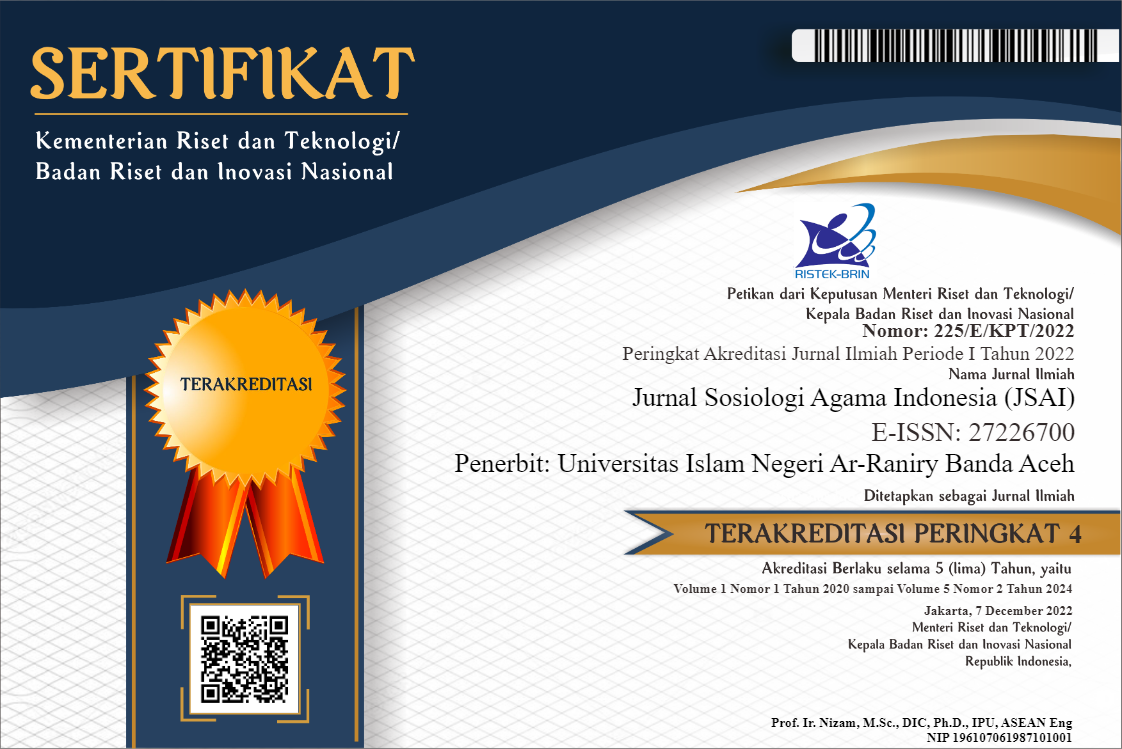Indonesia dalam Pusaran Masa Pandemi: Strategi Solidaritas Sosial berbasis Nilai Budaya Lokal
Abstract
This paper will describe and analyze the elaboration of local cultural values as a force of social solidarity in Indonesia during the current pandemic. Furthermore, the purpose of this paper will be to explore how social solidarity based on local cultural values can not only be a local resistance but can also create a space for negotiation and elaboration to find a solution in the current pandemic. Therefore, the data collection method used in the form of studying facts through literary sources will then be tested for relevance to the reality that is happening in the community. Using a cultural ethics perspective this paper will examine the extent to which values, ethics, and cultural morals can play a role in social solidarity in Indonesia. In the end, this paper will explore the elaboration of the concept of local Indonesian tradition with the policies carried out by the government as part of the concept of social solidarity and the nearest way out to maintain the survival of the Indonesian people in the midst of the current pandemic vortex.
References
Djera, A. (2019). Ecosophy: Kesadaran akan harmonisasi Kehidupan Ciptaan di Tanah Merapu. In Bagi Tuhan Jangan Ditunda: Teks Kehidupan Gereja di Sumba (p. 228). Satya Wacana University Press.
Flint, J. T. (1962). THE RELIGION OF JAVA. By Clifford Geertz. Glencoe, Ill.: The Free Press of Glencoe, 1960. 392 pp. $7.50. Social Forces, 40(3), 277–278. https://doi.org/10.2307/2573647
Funay, Y. (2020). Sabalong Samalewa: Falsafah Hidup sebagai Local Ethic dalam Relasi Lintas Agama di Tana Sumbawa. Universitas Kristen Satya Wacana.
Hick, J. (1980). God has Many Names. Palgrave Macmillan UK. https://doi.org/10.1007/978-1-349-16308-3
Jackson, M. (2016). As wide as the world is wise: Reinventing philosophical anthropology. Columbia University Press.
Khaidir, P. H. (2006). Nalar kemanusiaan, nalar perubahan sosial (Cet. 1). Teraju.
Lattu, I. (2016). Performative Interreligious Engagement: Memikirkan Sosiologi Hubungan Lintas Agama. In Sosiologi Agama Pilihan berteologi di Indonesia (p. 278). Fakultas Teologi UKSW.
Lattu, I. (2018). Halal Bihal in Javanese Interreligious Family Perspective. Seminar the Center for the Study of Religion, Pluralism and Democracy, Satya Wacana University.
Lattu, I. (2019). PUBLIC PERFORMANCE MODERASI BERAGAMA DALAM MULTIKULTURALISME DAN PLURALISME AGAMA DI INDONESIA. In Mozaik Moderasi Beragama dalam Perspektif Kristen (p. 2). BPK Gunung Mulia.
Lattu, I. Y. M. (2019). Beyond Interreligious Dialogue: Oral-Based Interreligious Engagements in Indonesia. Volume 10: Interreligious Dialogue, 70–90. https://doi.org/10.1163/9789004401266_006
Maarif, A. S. (2010). Politik identitas dan masa depan pluralisme kita (Cet. 1). Pusat Studi Agama dan Demokrasi : Yayasan Wakaf Paramadina.
Norris, C. (1985). Margins of Philosophy. By Jacques Derrida (Trans. Alan Bass). The University of Chicago Press. 1982. 330 pp. Romance Studies, 3(1), 43–54. https://doi.org/10.1179/ros.1985.3.2.43
Parekh, B. (2001). Rethinking Multiculturalism: Cultural Diversity and Political Theory. Ethnicities, 1(1), 109–115. https://doi.org/10.1177/146879680100100112
Program Peduli. (n.d.). Program Peduli. Retrieved June 21, 2020, from http://programpeduli.org/en/
Pusat Pembinaan dan Pengembangan Bahasa (Ed.). (1988). Kamus besar bahasa Indonesia (Edisi 1). Departemen Pendidikan dan Kebudayaan, Republik Indonesia.
Retnowati. (2016). Agama dan Kebudayaan Bangsa Sebagai Kekuataun Nasional: Refleksi Terhadap Dinamika Perjalanan Bangsa Indonesia dalam Merawat Kemajemukan Suku Bangsa. In Sosiologi Agama Pilihan Berteologi di Indonesia (p. 90). Fakultas Teologi UKSW.
Ritzer, G. (2012). Teori Sosiologi; dari Sosiologi Klasik sampai Perkembangan Terakhir Postmodern. Pustaka Pelajar.
Smelser, N. J. (1963). Theory of collective behavior. The Free Press of Glencoe. https://doi.org/10.1037/14412-000
Stone, G. P. (1957). The Presentation of Self in Everyday Life. Erving Goffman. American Journal of Sociology, 63(1), 105–105. https://doi.org/10.1086/222140
Suparlan, P. (2004). Hubungan antar-sukubangsa. Yayasan Pengembangan Kajian Ilmu Kepolisian.
Sutrisno, M. (2009). Ranah-ranah kebudayaan: Dalam esai. Kanisius.
- Authors retain copyright and grant the journal right of first publication with the work simultaneously licensed under an Attribution-NonCommercial-ShareAlike 4.0 International (CC BY-NC-SA 4.0) that allows others to share the work with an acknowledgment of the work's authorship and initial publication in this journal.
- Authors are able to enter into separate, additional contractual arrangements for the non-exclusive distribution of the journal's published version of the work (e.g., post it to an institutional repository or publish it in a book), with an acknowledgment of its initial publication in this journal.
- Authors are permitted and encouraged to post their work online (e.g., in institutional repositories or on their website) prior to and during the submission process, as it can lead to productive exchanges, as well as earlier and greater citation of published work.
















.png)






2.png)






